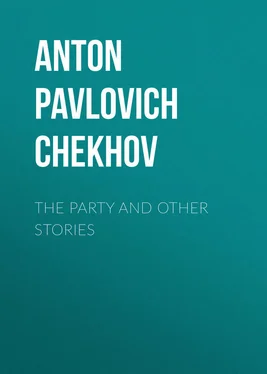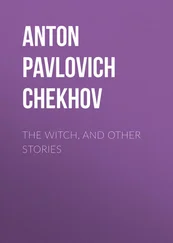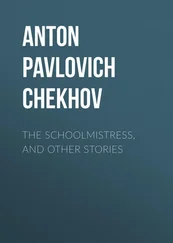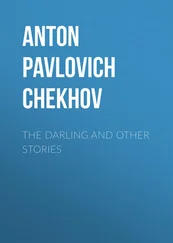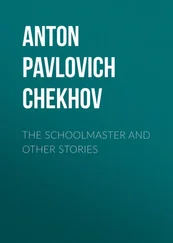Anton Chekhov - The Party and Other Stories
Здесь есть возможность читать онлайн «Anton Chekhov - The Party and Other Stories» — ознакомительный отрывок электронной книги совершенно бесплатно, а после прочтения отрывка купить полную версию. В некоторых случаях можно слушать аудио, скачать через торрент в формате fb2 и присутствует краткое содержание. Жанр: Старинная литература, Русская классическая проза, на английском языке. Описание произведения, (предисловие) а так же отзывы посетителей доступны на портале библиотеки ЛибКат.
- Название:The Party and Other Stories
- Автор:
- Жанр:
- Год:неизвестен
- ISBN:нет данных
- Рейтинг книги:4 / 5. Голосов: 1
-
Избранное:Добавить в избранное
- Отзывы:
-
Ваша оценка:
- 80
- 1
- 2
- 3
- 4
- 5
The Party and Other Stories: краткое содержание, описание и аннотация
Предлагаем к чтению аннотацию, описание, краткое содержание или предисловие (зависит от того, что написал сам автор книги «The Party and Other Stories»). Если вы не нашли необходимую информацию о книге — напишите в комментариях, мы постараемся отыскать её.
The Party and Other Stories — читать онлайн ознакомительный отрывок
Ниже представлен текст книги, разбитый по страницам. Система сохранения места последней прочитанной страницы, позволяет с удобством читать онлайн бесплатно книгу «The Party and Other Stories», без необходимости каждый раз заново искать на чём Вы остановились. Поставьте закладку, и сможете в любой момент перейти на страницу, на которой закончили чтение.
Интервал:
Закладка:
Anton Pavlovich Chekhov
The Party and Other Stories
THE PARTY
I
AFTER the festive dinner with its eight courses and its endless conversation, Olga Mihalovna, whose husband's name-day was being celebrated, went out into the garden. The duty of smiling and talking incessantly, the clatter of the crockery, the stupidity of the servants, the long intervals between the courses, and the stays she had put on to conceal her condition from the visitors, wearied her to exhaustion. She longed to get away from the house, to sit in the shade and rest her heart with thoughts of the baby which was to be born to her in another two months. She was used to these thoughts coming to her as she turned to the left out of the big avenue into the narrow path. Here in the thick shade of the plums and cherry-trees the dry branches used to scratch her neck and shoulders; a spider's web would settle on her face, and there would rise up in her mind the image of a little creature of undetermined sex and undefined features, and it began to seem as though it were not the spider's web that tickled her face and neck caressingly, but that little creature. When, at the end of the path, a thin wicker hurdle came into sight, and behind it podgy beehives with tiled roofs; when in the motionless, stagnant air there came a smell of hay and honey, and a soft buzzing of bees was audible, then the little creature would take complete possession of Olga Mihalovna. She used to sit down on a bench near the shanty woven of branches, and fall to thinking.
This time, too, she went on as far as the seat, sat down, and began thinking; but instead of the little creature there rose up in her imagination the figures of the grown-up people whom she had just left. She felt dreadfully uneasy that she, the hostess, had deserted her guests, and she remembered how her husband, Pyotr Dmitritch, and her uncle, Nikolay Nikolaitch, had argued at dinner about trial by jury, about the press, and about the higher education of women. Her husband, as usual, argued in order to show off his Conservative ideas before his visitors – and still more in order to disagree with her uncle, whom he disliked. Her uncle contradicted him and wrangled over every word he uttered, so as to show the company that he, Uncle Nikolay Nikolaitch, still retained his youthful freshness of spirit and free-thinking in spite of his fifty-nine years. And towards the end of dinner even Olga Mihalovna herself could not resist taking part and unskilfully attempting to defend university education for women – not that that education stood in need of her defence, but simply because she wanted to annoy her husband, who to her mind was unfair. The guests were wearied by this discussion, but they all thought it necessary to take part in it, and talked a great deal, although none of them took any interest in trial by jury or the higher education of women..
Olga Mihalovna was sitting on the nearest side of the hurdle near the shanty. The sun was hidden behind the clouds. The trees and the air were overcast as before rain, but in spite of that it was hot and stifling. The hay cut under the trees on the previous day was lying ungathered, looking melancholy, with here and there a patch of colour from the faded flowers, and from it came a heavy, sickly scent. It was still. The other side of the hurdle there was a monotonous hum of bees..
Suddenly she heard footsteps and voices; some one was coming along the path towards the beehouse.
"How stifling it is!" said a feminine voice. "What do you think – is it going to rain, or not?"
"It is going to rain, my charmer, but not before night," a very familiar male voice answered languidly. "There will be a good rain."
Olga Mihalovna calculated that if she made haste to hide in the shanty they would pass by without seeing her, and she would not have to talk and to force herself to smile. She picked up her skirts, bent down and crept into the shanty. At once she felt upon her face, her neck, her arms, the hot air as heavy as steam. If it had not been for the stuffiness and the close smell of rye bread, fennel, and brushwood, which prevented her from breathing freely, it would have been delightful to hide from her visitors here under the thatched roof in the dusk, and to think about the little creature. It was cosy and quiet.
"What a pretty spot!" said a feminine voice. "Let us sit here, Pyotr
Dmitritch."
Olga Mihalovna began peeping through a crack between two branches. She saw her husband, Pyotr Dmitritch, and Lubotchka Sheller, a girl of seventeen who had not long left boarding-school. Pyotr Dmitritch, with his hat on the back of his head, languid and indolent from having drunk so much at dinner, slouched by the hurdle and raked the hay into a heap with his foot; Lubotchka, pink with the heat and pretty as ever, stood with her hands behind her, watching the lazy movements of his big handsome person.
Olga Mihalovna knew that her husband was attractive to women, and did not like to see him with them. There was nothing out of the way in Pyotr Dmitritch's lazily raking together the hay in order to sit down on it with Lubotchka and chatter to her of trivialities; there was nothing out of the way, either, in pretty Lubotchka's looking at him with her soft eyes; but yet Olga Mihalovna felt vexed with her husband and frightened and pleased that she could listen to them.
"Sit down, enchantress," said Pyotr Dmitritch, sinking down on the hay and stretching. "That's right. Come, tell me something."
"What next! If I begin telling you anything you will go to sleep."
"Me go to sleep? Allah forbid! Can I go to sleep while eyes like yours are watching me?"
In her husband's words, and in the fact that he was lolling with his hat on the back of his head in the presence of a lady, there was nothing out of the way either. He was spoilt by women, knew that they found him attractive, and had adopted with them a special tone which every one said suited him. With Lubotchka he behaved as with all women. But, all the same, Olga Mihalovna was jealous.
"Tell me, please," said Lubotchka, after a brief silence – "is it true that you are to be tried for something?"
"I? Yes, I am.. numbered among the transgressors, my charmer."
"But what for?"
"For nothing, but just.. it's chiefly a question of politics," yawned Pyotr Dmitritch – "the antagonisms of Left and Right. I, an obscurantist and reactionary, ventured in an official paper to make use of an expression offensive in the eyes of such immaculate Gladstones as Vladimir Pavlovitch Vladimirov and our local justice of the peace – Kuzma Grigoritch Vostryakov."
Pytor Dmitritch yawned again and went on:
"And it is the way with us that you may express disapproval of the sun or the moon, or anything you like, but God preserve you from touching the Liberals! Heaven forbid! A Liberal is like the poisonous dry fungus which covers you with a cloud of dust if you accidentally touch it with your finger."
"What happened to you?"
"Nothing particular. The whole flare-up started from the merest trifle. A teacher, a detestable person of clerical associations, hands to Vostryakov a petition against a tavern-keeper, charging him with insulting language and behaviour in a public place. Everything showed that both the teacher and the tavern-keeper were drunk as cobblers, and that they behaved equally badly. If there had been insulting behaviour, the insult had anyway been mutual. Vostryakov ought to have fined them both for a breach of the peace and have turned them out of the court – that is all. But that's not our way of doing things. With us what stands first is not the person – not the fact itself, but the trade-mark and label. However great a rascal a teacher may be, he is always in the right because he is a teacher; a tavern-keeper is always in the wrong because he is a tavern-keeper and a money-grubber. Vostryakov placed the tavern-keeper under arrest. The man appealed to the Circuit Court; the Circuit Court triumphantly upheld Vostryakov's decision. Well, I stuck to my own opinion… Got a little hot… That was all."
Читать дальшеИнтервал:
Закладка:
Похожие книги на «The Party and Other Stories»
Представляем Вашему вниманию похожие книги на «The Party and Other Stories» списком для выбора. Мы отобрали схожую по названию и смыслу литературу в надежде предоставить читателям больше вариантов отыскать новые, интересные, ещё непрочитанные произведения.
Обсуждение, отзывы о книге «The Party and Other Stories» и просто собственные мнения читателей. Оставьте ваши комментарии, напишите, что Вы думаете о произведении, его смысле или главных героях. Укажите что конкретно понравилось, а что нет, и почему Вы так считаете.
